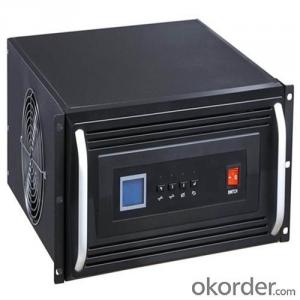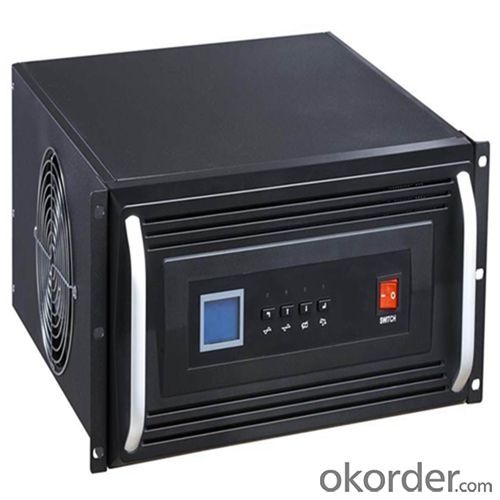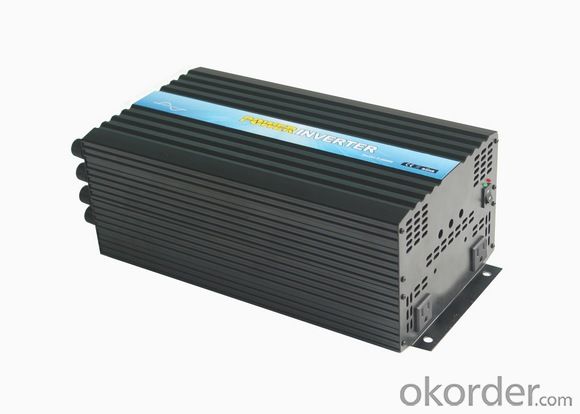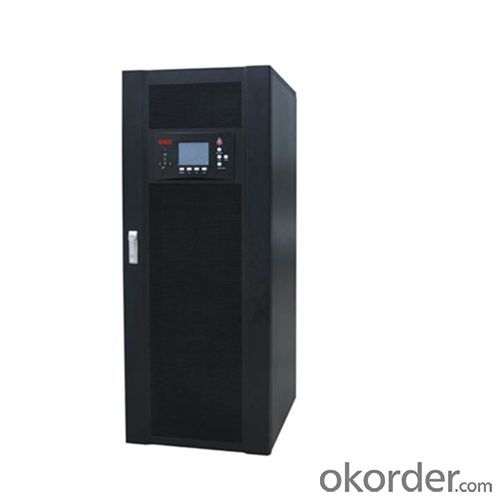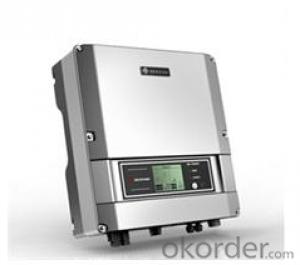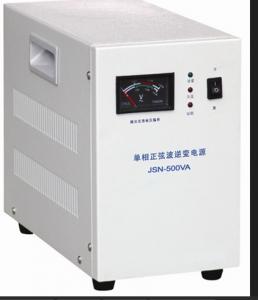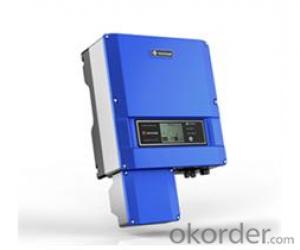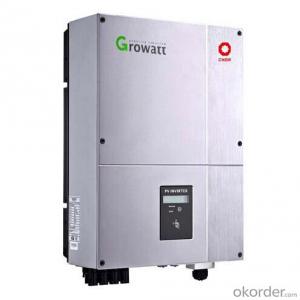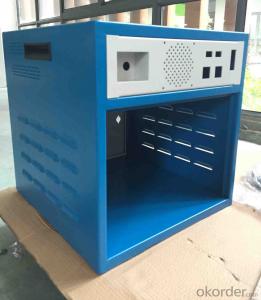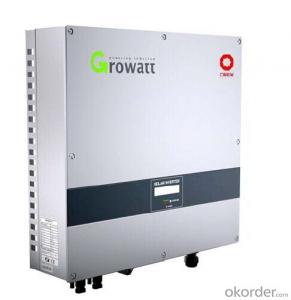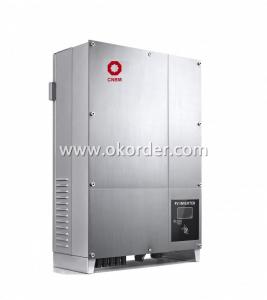CNBM-1500TL Solar Inverter Off Grid
- Loading Port:
- Shanghai
- Payment Terms:
- TT OR LC
- Min Order Qty:
- 1000 watt
- Supply Capability:
- 100000000 watt/month
OKorder Service Pledge
OKorder Financial Service
You Might Also Like
1.Features of the Solar Inverter
Maximum efficiency of 97.8% and wide input voltage range
Internal DC switch
MTL-String
Sound control
Bluetooth/RF technology/WF-Fi
Transformerless GT topology
2.Data sheet of the Solar Inverter
| Model | CNBM-1500TL |
| Input data (DC) | |
| Max. DC power | 1800W |
| Max. DC voltage | 450V |
| PV Voltage Range | 100V~450V |
| Max.input current | 10A |
| Number of MPP trackers/strings per | 1/1 |
| MPP tracker |
| OUTPUT (AC) | |
| Rated AC output power | 1600W |
| Max AC power | 1650W |
| Max output current | 8A |
| Power Factor | 1 |
| THDI | <3% |
| AC connection | Single phase |
| Efficiency | |
| Max efficiency | 97% |
| Euro weighted efficiency | 96.5% |
| MPPT efficiency | 99.5% |
| Protection devices | |
| Output over voltage protection varistor | yes |
| Ground fault monitoring | yes |
| Grid monitoring | yes |
| GENERAL Data | |
Dimensions, D X W X H (mm) | 360x329x132 |
| Weight (kgs) | 11.5 |
| Operating temperature range | -25℃...+60℃ |
| Altitude | 2000m(6560ft)without derating |
| Self Consumption night | <0.5W |
| Topology | Transformerless |
| Cooling concept | Natural |
| Environmental | IP65 |
| Protecting Rating |
| Features | |
| DC connection | H4/MC4(opt) |
| Display | LCD |
| Interfaces:RS485/RS232/Bluetooth/RF/Zigbee/Wifi | yes/yes/opt/opt/opt/opt |
| Warranty:5 years/10 years | yes/opt |
| Certificates and approvals | CE.VDE 0216-1-1.DK5940.G83/1-1.G59/2.RD1663.EN50438.CEL-021.ICE-62109.ENEL-Guide |
3.Applications of the Solar Inverter
Inverter not only has direct communication transform function, but also has the maximum limit to carry on the function of the solar cell function and system fault maintenance function. In the aggregate, have active operation and shutdown function, maximum power tracking control function, prevent operation function alone (grid system use), the active voltage adjustment functions (grid system use), dc testing functions (grid system use), dc grounding detection function (grid system use)
4.IMages of the Solar Inverter
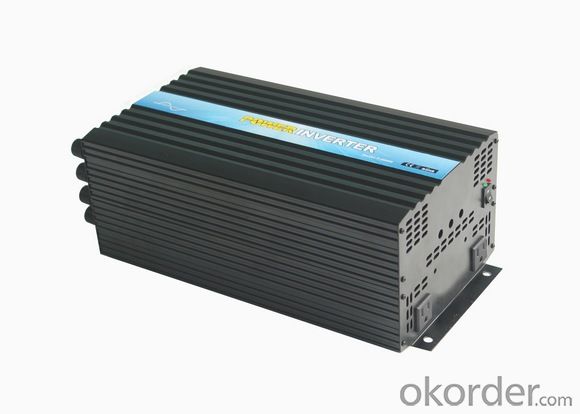
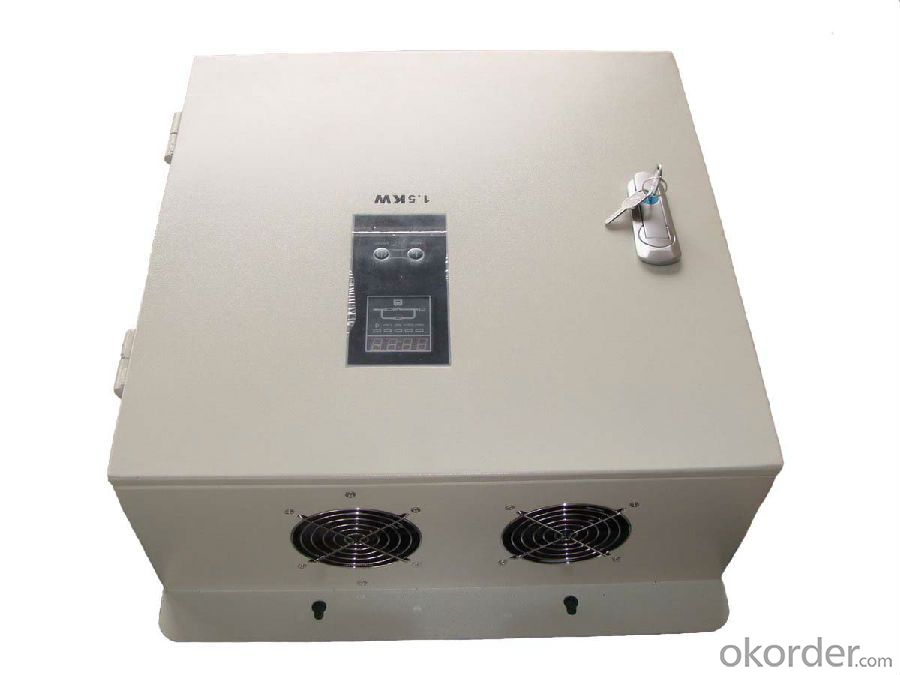
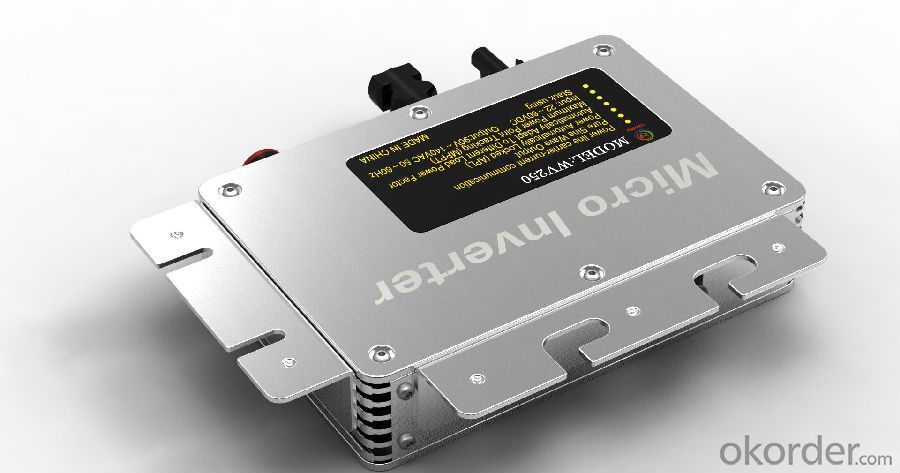
FAQ
Q: Do you have the CE, TUV, UL Certification?
A: We’ve already passed all the tests, and any certificate is available.
Q: Have you ever sold your products to companies in my country?
A: Of course, we have customers in all general PV markets, but I think we should expand our market share along with the market growth.
Q: When did your company set up? You are a new company, how can I believe your quality?
A: We entered into Solar PV industry in 2005, now we have several plants in manufacturing of a-Si and c-Si panels, and our capacity is 220MW per year. Till now we have already passed all the tests by authorized laboratories, e.g. TUV, CE, UL.
Q: Can you help us install the module if we cooperate with you?
A: We haven’t entered into installation sector, but we have the plan in near future.
Q: How do you pack your products?
A: We have rich experience on how to pack the panels to make sure the safety on shipment when it arrives at the destination.
Q: Can you do OEM for us?
A: Yes, we can.
Q: Can we visit your factory?
A: Surely, I will arrange the trip basing on your business schedule.
- Q: How does a solar inverter affect the overall system cost?
- A solar inverter can increase the overall system cost as it is a crucial component responsible for converting the DC electricity generated by solar panels into AC electricity for use in homes and businesses. The efficiency, capacity, and quality of the inverter can influence the system's performance and reliability. Higher-quality inverters with advanced features tend to be more expensive, but they can maximize energy production and improve system durability, potentially offsetting the initial cost through increased energy savings over time.
- Q: What is the role of a solar inverter in a solar-powered ventilation system?
- The role of a solar inverter in a solar-powered ventilation system is to convert the direct current (DC) electricity generated by the solar panels into alternating current (AC) electricity, which is the type of electricity used in most household appliances. This conversion allows the ventilation system to effectively utilize the solar energy and power the fans, motors, or other components of the system.
- Q: Can a solar inverter be used with different types of solar panels?
- Yes, a solar inverter can be used with different types of solar panels as long as the voltage and current specifications of the panels are compatible with the inverter.
- Q: What is the role of capacitors in a solar inverter?
- The role of capacitors in a solar inverter is to store and release electrical energy in order to regulate and smooth out the flow of power. They help to stabilize the voltage levels, filter out any fluctuations or noise in the electrical signal, and provide a reserve of power for sudden increases in demand. Capacitors also improve the overall efficiency and performance of the solar inverter by reducing the strain on other components and preventing damage from power surges or spikes.
- Q: Can a solar inverter be used with a solar-powered air conditioning system?
- Yes, a solar inverter can be used with a solar-powered air conditioning system. The solar inverter converts the direct current (DC) electricity generated by the solar panels into alternating current (AC) electricity, which is used to power the air conditioning system. This allows the air conditioning system to run efficiently and effectively using solar energy.
- Q: How does MPPT improve the efficiency of a solar inverter?
- MPPT (Maximum Power Point Tracking) improves the efficiency of a solar inverter by continuously adjusting the operating point of the solar panels to ensure they are producing maximum power. This is achieved by maximizing the voltage and current output of the panels, which allows the inverter to convert more of the available solar energy into usable electricity. By constantly tracking the maximum power point, MPPT ensures that the solar inverter operates at its highest efficiency, resulting in increased overall system efficiency and improved energy generation.
- Q: How does a solar inverter handle electromagnetic interference (EMI)?
- A solar inverter typically handles electromagnetic interference (EMI) by incorporating various measures and technologies to minimize its impact. This includes using shielding materials and techniques to prevent EMI from affecting the internal electronics of the inverter. Additionally, filters and surge suppressors are employed to reduce EMI generated by the inverter from interfering with other electronic devices. Overall, the solar inverter aims to mitigate EMI issues to ensure optimal performance and minimize disruptions.
- Q: Can a solar inverter be used in areas with unstable grid power?
- Yes, a solar inverter can be used in areas with unstable grid power. Solar inverters are designed to convert the DC power generated by solar panels into AC power for use in homes or businesses. In areas with unstable grid power, a solar inverter can help stabilize the electricity supply by utilizing the solar energy generated. It can operate independently or in conjunction with the grid, providing a reliable power source even during grid outages or fluctuations.
- Q: Can a solar inverter be used with solar-powered irrigation systems?
- Yes, a solar inverter can be used with solar-powered irrigation systems. The solar inverter converts the direct current (DC) produced by the solar panels into alternating current (AC) that can be used to power the irrigation system. This allows for the efficient and effective utilization of solar energy in irrigating crops or plants.
- Q: What is the maximum AC power output of a solar inverter?
- The maximum AC power output of a solar inverter varies depending on the specific model and capacity. It can range from a few hundred watts for small residential inverters to several megawatts for large commercial or utility-scale inverters.
Send your message to us
CNBM-1500TL Solar Inverter Off Grid
- Loading Port:
- Shanghai
- Payment Terms:
- TT OR LC
- Min Order Qty:
- 1000 watt
- Supply Capability:
- 100000000 watt/month
OKorder Service Pledge
OKorder Financial Service
Similar products
Hot products
Hot Searches
Related keywords
